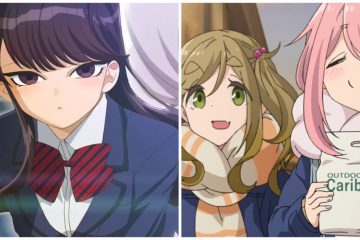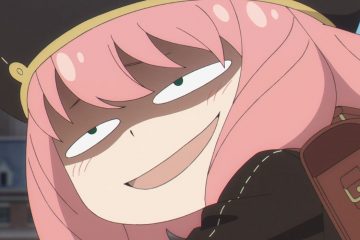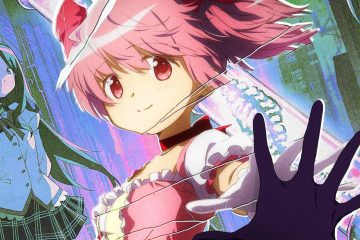Shonen anime tends to have some very specific hallmarks to identify it as a genre. Usually, a plucky protagonist and their friends are seeking some nebulous goal or another. Sometimes they want to be the best in their field, other times they’re seeking an ancient artifact, and the list goes on from there. There are always some darker turns in their stories that tend to determine the changes that the characters will go through and, in the end, the stories are meant to be satisfying and fun without being too much like in seinen manga. But there is one thing that seems to tie a lot of shonen anime together.From Hunter x Hunter to My Hero Academia, fatherhood seems to be one of the biggest sticking points throughout the genre. If fathers are even there at all, they don’t tend to be the best examples of fatherhood. The anime of Jujutsu Kaisen, for example, recently let audiences meet Toji Fushiguro, Megumi’s absentee father who can’t even remember exactly who he is in the flashback without thinking hard about it and is shown to be willing to sell his child. It is enough of a trend throughout anime to make audiences wonder, why are the dads in shonen so bad?There are some awful dads in shonen anime. Ranging all the way from simply being absent to the downright villainous, there is a wide spectrum for this particular trope but there are a lot of traits that they tend to have in common. These dads tend to be defined by either their occupation or their pastime, lack a certain level of empathy, and have a strongly contentious relationship with their child if a relationship exists at all. While this does paint a broad brush, these tropes are incredibly present, especially in newer anime as they have evolved over time. Three of the best examples of this trope from more recent manga are Toji Fushiguro of Jujustu Kaisen, Enji Todoroki of My Hero Academia, and Ging Freecss for Hunter x Hunter.Attack On Titan’s 15 Most Hated Characters, Ranked
Shonen anime tends to have some very specific hallmarks to identify it as a genre. Usually, a plucky protagonist and their friends are seeking some nebulous goal or another. Sometimes they want to be the best in their field, other times they’re seeking an ancient artifact, and the list goes on from there. There are always some darker turns in their stories that tend to determine the changes that the characters will go through and, in the end, the stories are meant to be satisfying and fun without being too much like in seinen manga. But there is one thing that seems to tie a lot of shonen anime together.
From Hunter x Hunter to My Hero Academia, fatherhood seems to be one of the biggest sticking points throughout the genre. If fathers are even there at all, they don’t tend to be the best examples of fatherhood. The anime of Jujutsu Kaisen, for example, recently let audiences meet Toji Fushiguro, Megumi’s absentee father who can’t even remember exactly who he is in the flashback without thinking hard about it and is shown to be willing to sell his child. It is enough of a trend throughout anime to make audiences wonder, why are the dads in shonen so bad?
There are some awful dads in shonen anime. Ranging all the way from simply being absent to the downright villainous, there is a wide spectrum for this particular trope but there are a lot of traits that they tend to have in common. These dads tend to be defined by either their occupation or their pastime, lack a certain level of empathy, and have a strongly contentious relationship with their child if a relationship exists at all. While this does paint a broad brush, these tropes are incredibly present, especially in newer anime as they have evolved over time. Three of the best examples of this trope from more recent manga are Toji Fushiguro of Jujustu Kaisen, Enji Todoroki of My Hero Academia, and Ging Freecss for Hunter x Hunter.
#Hero #Academia #Hunter #Hunter #Shonen #Dads #Bad
Note:- (Not all news on the site expresses the point of view of the site, but we transmit this news automatically and translate it through programmatic technology on the site and not from a human editor. The content is auto-generated from a syndicated feed.))



